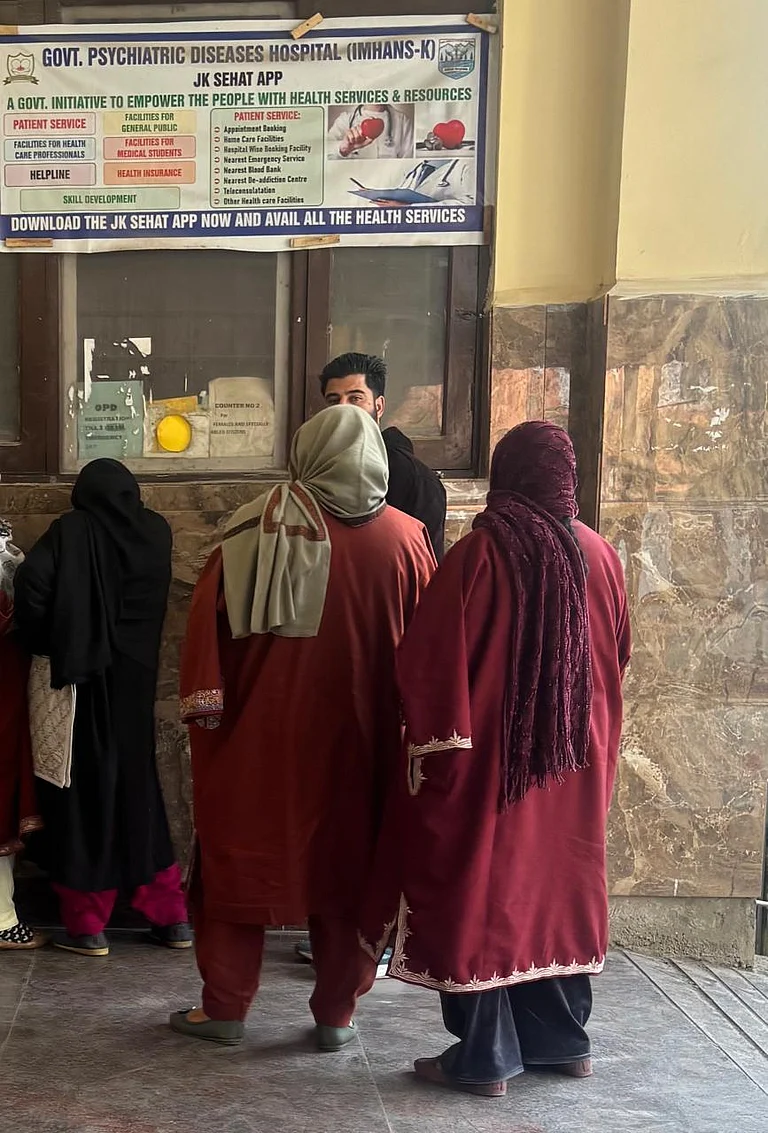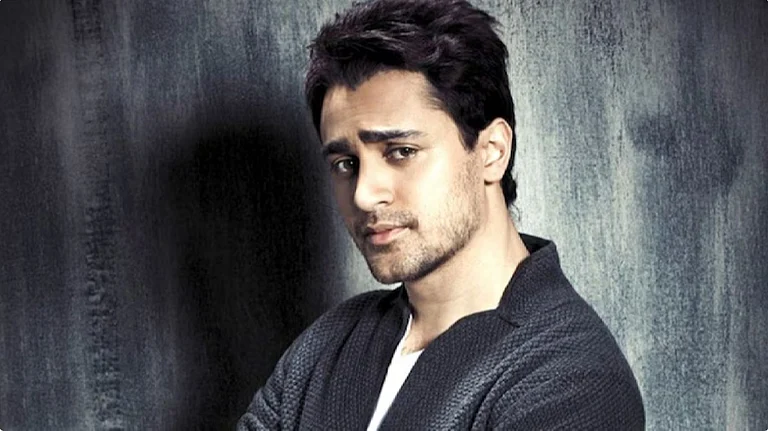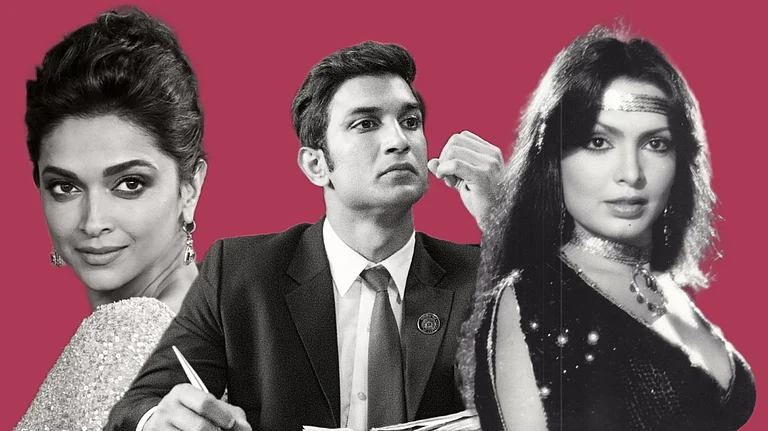
Rajshri Deshpande’s breakout role in Trial By Fire made her the toast of a nation, yet the months that followed were mentally exhausting and confusing, with no meaningful roles offered even a year later.
In an industry driven by social media likes, meme potential, and PR-managed visibility, actors like Deshpande and Shahana Goswami often lose out for not playing the game of perception and packaging.
Both actors emphasise the importance of mental peace over popularity, managing modest lifestyles and encouraging others to avoid being mentally consumed by the industry’s highs and lows.
It can be challenging to survive in a city like Mumbai, where you’re surrounded by a deluge of announcements of projects.
Most casting choices are based on the last role one might have played.
Most actors are compelled to fight their battles quietly, behind closed doors.
Actor Rajshri Deshpande had the most fairytale beginnings to 2023. Starring in Netflix series Trial By Fire—chronicling the Uphaar cinema tragedy and its aftermath—she played the role of Neelam Krishanmoorthy, a parent to two of the 59 victims of the incident in which a fire broke out during a screening of JP Dutta’s Border (1997), and killed many audience members.
Many reviews singled out Deshpande’s stoic portrayal of Krishnamoorthy, as a highlight of the show. However, much to everyone’s surprise, while collecting the award for Best Actor (Female) at the Critic’s Choice Awards (CCA) 2024— Deshpande revealed that despite all the admiration and respect she’d got in the last few months, it hadn’t resulted in more compelling offers even a year later.
Overcome with emotions during her acceptance speech, the 42-year-old actor’s voice quivered, unable to reconcile the contradictory feedback for arguably her career’s best role.
Most aspiring actors would dream of a moment like this—becoming the toast of a nation for a few days/weeks/months, nominated for multiple awards, named in almost every best performance list of the year. However, it’s also the cruel reality of being a working actor in India that great work doesn’t necessarily beget similarly great work.
It can be a mentally exhausting, confusing time for someone—especially as sensitive and vulnerable as actors. Most casting choices are based on the last role one might have played, something any self-respecting actor would reject at the fear of being typecast. And so, work is turned down, some prospects don’t pan out. Given the limited number of ‘good’ roles means most promising actors are left without satisfying work for long stretches.
It can be challenging to survive in a city like Mumbai, where you’re surrounded by a deluge of announcements of projects across platforms every other day. Also, where the highs can seem extraordinarily high, and the lows can seem that much more isolating. Bollywood can be a cruel place, where after surviving the industry’s schemes—actors are often left to their own devices for the upkeep of their own mental health.
A fortunate few, like Deepika Padukone, can acknowledge this fragility in the public eye and still remain unmarked. But most actors are compelled to fight their battles quietly, behind closed doors. Therefore, it’s no surprise that we keep reading about actors dying by suicide in Mumbai, a phenomenon that’s got all the more spotlight since 2020, after Sushant Singh Rajput’s shocking demise.
Deshpande, speaking about the disappointing year that 2024 was, said she refused almost every offer through the first three quarters of the year. “[The roles were] either a part of ensembles or offers from big banners would imply: We’re doing you a favour, do it for (practically) free!” she recounts. The Sacred Games actor waited all of 2024 for the industry to accord her the respect and money she thinks she deserves after working for 15 years, and especially after the appreciation she got in Trial By Fire.
Unfortunately, an actor’s skill is not the metric that is used to determine the cast of a film/show these days. “How many likes will a post get with an actor’s face on it, or how many memes will it spawn. Which stars will come for the premiere? These are the kinds of questions going into the casting space,” attests Deshpande.
It’s a problem that has dogged other actors too, like Shahana Goswami. Having been acting for over two decades, the 39-year-old actor was under the world’s arc lights, thanks to Sandhya Suri’s Santosh (2024), the UK’s entry to the Oscars. About a constable observing the apathy of the police force in small towns, didn’t find a release in India after getting stuck with the censor board. Most actors might have taken it as a gut-punch to their career.
However, Goswami talks about it in a relatively matter-of-fact manner. It’s not the first time her ‘breakout’ is being followed by a lull in the industry. “Right after Rock On! (2008), the recession hit the film industry pretty majorly.” Technically, Santosh has not released in India (except for playing at a few film festivals), but Goswami is confident that the offers wouldn’t be radically different even if it did.
“I have noticed that despite all the recognition and appreciation, if the film doesn’t reach a certain level of ‘success’ (even though Rock On! was a success), I don’t know how it works!” she trails off.
Veterans might say that these two actors are being naive, by refusing to play ‘the game’ of manufacturing image, and building a perception. Deshpande concedes she knows friends, who have taken loans to sign a year-long contract with PR agencies, who can guarantee ‘spotting’—where the paparazzi are told celebrity X is going to be at Y, thereby guaranteeing being in the public eye.
It’s another one of those games in the attention economy. “There are packages sold in the open market, with the promise that such and such person is now charging this much. It probably works out for one out of every hundred people,” says Deshpande. “Actors can be in a vulnerable spot, so many people end up taking advantage of you.”
Goswami attests to the fact that she’s had her family’s support, a privilege not available to everyone around her. It’s allowed her to make her choices more freely. The Firaaq actor resided in Paris between 2015 and 2019, coming back to Mumbai only after she was offered three web series, and which demanded she be around for long stretches. “It depends on what your personal interest and aspiration of the time is. Largely, I remember having the feeling that I wouldn’t want to do the same old, same old kind of work,” confesses Goswami.
It takes a lot to stick to one’s guns, especially when you’re constantly comparing yourself with contemporaries, who might end up, in Deshpande’s words, with more packaging. “I spent my 20s making money and accepting any or all rubbish. I know I’ve gained nothing from doing that. It has its own way of breaking you.” Deshpande took up social work, and in the last 12 years has not reconsidered her decision to embrace a minimalist lifestyle.
There’s also a disadvantage that female actors face, compared to their male contemporaries. “I’ve been told by many casting directors how Trial By Fire wasn’t that big a hit. Some people tend to keep pulling you down. Obviously, that’s not everyone in the industry.” says Deshpande.
She recounts an anecdote when a male contemporary got her on-board for an independent film, which apparently didn’t have a lot of money. She agreed to do it for very little money, because she wanted to be supportive. But when she reached the shoot, she saw how her male colleague’s entourage, his hairstylist, his spot. He was also given the biggest room in the hotel.
“I think female actors get submissive very easily,” notes Deshpande, “vis-a-vis our male counterparts.” While prefacing her comment with how she’s happy for everyone doing well, Deshpande notes how she started out with the likes of Jaideep Ahlawat, Rajkummar Rao and Vijay Varma.
They’ve all gone through similar kinds of struggle, but the variety of roles available for the male actors is way more than what is available for the female actors. Forget equality, it’s not even in the area of being a respectable gap.
“I think our industry doesn’t know what to do with a woman in her forties,” admits Deshpande, before adding “... most roles tend to be of a mother – without an arc of any sort.”
Not one to fall into the trap of a celebrity facade, even showing up to premieres in rickshaws or cabs – Goswami decided early on in her career that she wouldn’t focus on such externalities.
She considers herself fortunate for being a working actor for more than two decades, and she urges young actors to pick something that can occupy their mind outside of their career: it could be learning a language, an instrument or learning how to cook. “I’ve realised the problem often is how mentally consumed we are with a problem, rather than the actual problem,” she says.
According to Deshpande, every individual (and especially aspiring young actors) should be financially savvy. She claims to know exactly how much she has in her bank account, which allows her to extend herself accordingly.
She knows her strengths as an actor, and her weaknesses. She knows the kind of work she wants to take up, and with whom. “I borrow clothes from friends, and manage my public appearances. I live in a small flat in Versova, and my demands are few. My mental piece is much more important than a couple of Jimmy Choos.”






























